In celebration of our 50th anniversary, each month we will be sharing a story that highlights one of our programs or treatment populations. Below is Ashley’s story, who recently completed residential treatment at Lafayette Avenue, our young women’s program in the Bronx.
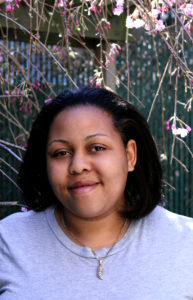 Ashley, 28, started using drugs and alcohol after graduating high school in Long Island. It started with the occasional use of marijuana and alcohol, mostly as a means of fitting in with her friends and dealing with low self-esteem. It also made it easier to ignore that she was directionless, in and out of college, unable to decide what to study or do with her life.
Ashley, 28, started using drugs and alcohol after graduating high school in Long Island. It started with the occasional use of marijuana and alcohol, mostly as a means of fitting in with her friends and dealing with low self-esteem. It also made it easier to ignore that she was directionless, in and out of college, unable to decide what to study or do with her life.
Her drug use developed into a full-fledged problem when she was 23. By then she was a new mother. To manage the trauma of escaping an abusive relationship with her daughter’s father and the stress of single parenthood Ashley, turned to cocaine, marijuana, and alcohol.
Her life became chaotic. She regularly left her daughter with her parents to go out with friends and started selling drugs. At various points, Ashley realized she had a problem and struggled to get help: she tried three different outpatient clinics over two years, but she never stayed clean for long.
Recognizing the dangers of her lifestyle, she sent her daughter to South Carolina to live with her grandmother for a little while. Shortly after, events took a serious turn. She was arrested for selling drugs. Because it was her first offense, the judge recommended Ashley get residential treatment and referred her to Odyssey House.
Ashley was admitted to the young adult women’s program in the Bronx last October. It took time, but once she adjusted to the structured environment, she began to feel herself change. Being in treatment “helped me open up to others, understand that the way I was living was wrong, and bridge the gap between me and my family,” she says. The groups were particularly beneficial in helping Ashley find peace. “The more I talked to my peers, the lighter my burden felt.”
Ashley says she now has better coping and communication skills and, thanks to vocational training, has a clearly defined career track she is passionate about. She was always interested in cooking – as a child, she could often be found helping her mom in the kitchen – so when it came time to choose a vocational training track, the culinary arts program was a natural fit. “My mom and I used to talk about opening a family-run Italian restaurant, so that’s what I’m working towards.”
Though she’s nervous about leaving treatment, Ashley has a few strategies to help ease the transition, by continuing treatment at a local outpatient program and finishing her culinary training. “I really benefited from the structure of the program, so I’m going to incorporate that into my day,” she says. Mostly, she’s motivated by the prospect of seeing her daughter again, and finally being the mother she deserves.
“I wish I could go back in time and tell my 18-year-old self ‘Slow down! There’s nothing but trouble ahead if you keep living like this.’ But all I can do is keep working on my recovery, and focus on my daughter. I can’t let her down again.
“If you have a problem, it’s okay to come to treatment. It gives you hope. Once you address certain issues, the pain goes away. You’ll come out a better person. I know I’m coming out a better person, a better mother. Every minute I spent at Odyssey House was worth it.”
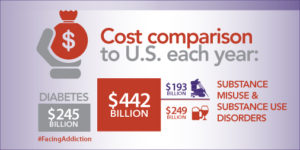 It can’t go on. The death rate from what is a preventable, and treatable disease, is unconscionable. The financial costs are unsustainable.
It can’t go on. The death rate from what is a preventable, and treatable disease, is unconscionable. The financial costs are unsustainable.

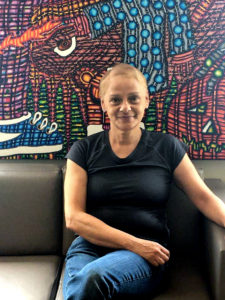 Almost four years ago, at the age of 50, Marjorie had a major psychotic breakdown, leading to hospitalization and a diagnosis of schizophrenia. On top of that she was also struggling to maintain a fragile sobriety. For over 30 years, Marjorie had found solace in illegal drugs as a way to cope with her traumatic childhood. Realizing her situation was critical, she knew if she was going to save her life it was now or never. She grabbed hold of that chance.
Almost four years ago, at the age of 50, Marjorie had a major psychotic breakdown, leading to hospitalization and a diagnosis of schizophrenia. On top of that she was also struggling to maintain a fragile sobriety. For over 30 years, Marjorie had found solace in illegal drugs as a way to cope with her traumatic childhood. Realizing her situation was critical, she knew if she was going to save her life it was now or never. She grabbed hold of that chance. Ryan has worked hard to improve her health – quitting smoking, eating healthier – and has found strength in the support of her team. “We don’t leave people behind. We’re always checking on each other, even in the program, to make sure we’re taking care of ourselves, physically and mentally.” As a returning runner, Ryan has taken a leadership role on the team. “I have grown so much in the past year. I’m not just a teammate, I’m a positive role model. My teammates even nicknamed me Coach Stevens!”
Ryan has worked hard to improve her health – quitting smoking, eating healthier – and has found strength in the support of her team. “We don’t leave people behind. We’re always checking on each other, even in the program, to make sure we’re taking care of ourselves, physically and mentally.” As a returning runner, Ryan has taken a leadership role on the team. “I have grown so much in the past year. I’m not just a teammate, I’m a positive role model. My teammates even nicknamed me Coach Stevens!”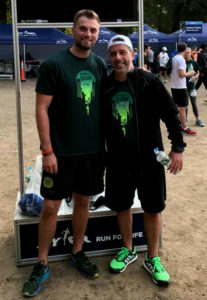
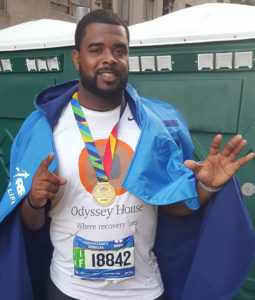
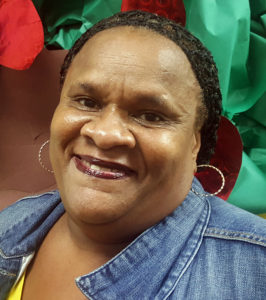 In 2014, Sheryl, 53, was early in her recovery. She had recently completed a rehabilitation program and, though she felt good about her new life, she knew from past experiences that she needed the support of peers who understand the complexities that come from struggling with an addiction for over 30 years. As an older adult who had been addicted to crack cocaine for so long, Sheryl felt that the challenges she faced were unique and needed to be treated as such.
In 2014, Sheryl, 53, was early in her recovery. She had recently completed a rehabilitation program and, though she felt good about her new life, she knew from past experiences that she needed the support of peers who understand the complexities that come from struggling with an addiction for over 30 years. As an older adult who had been addicted to crack cocaine for so long, Sheryl felt that the challenges she faced were unique and needed to be treated as such.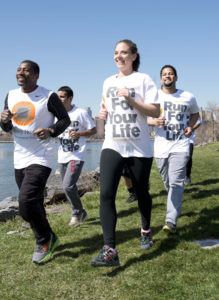
 Ashley, 28, started using drugs and alcohol after graduating high school in Long Island. It started with the occasional use of marijuana and alcohol, mostly as a means of fitting in with her friends and dealing with low self-esteem. It also made it easier to ignore that she was directionless, in and out of college, unable to decide what to study or do with her life.
Ashley, 28, started using drugs and alcohol after graduating high school in Long Island. It started with the occasional use of marijuana and alcohol, mostly as a means of fitting in with her friends and dealing with low self-esteem. It also made it easier to ignore that she was directionless, in and out of college, unable to decide what to study or do with her life.